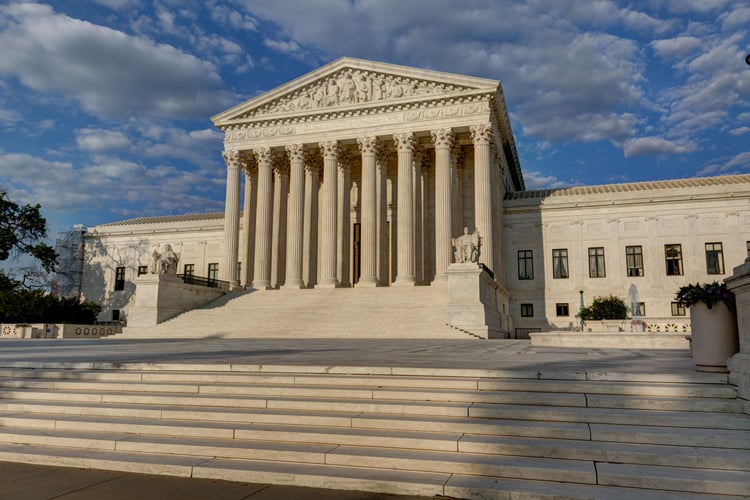Traditional insanity defense isn't constitutionally required, SCOTUS rules

Image from Shutterstock.
The U.S. Supreme Court ruled on Monday that the due process clause doesn’t require states to offer a traditional insanity defense based on a defendant’s inability to distinguish right from wrong.
The Supreme Court ruled 6-3 in the case of Kansas death row inmate James Kraig Kahler, who was convicted of killing four family members in 2009. Justice Elena Kagan wrote the majority opinion, joined by Chief Justice John G. Roberts Jr. and Justices Clarence Thomas, Samuel A. Alito Jr., Neil M. Gorsuch and Brett M. Kavanaugh.
In Kansas, a defendant can invoke mental illness to show he lacked the required mental state that is a required element of the crime. A defendant can also raise any kind of mental illness after conviction to seek a lower prison term or commitment to a mental health facility.
Kansas is among a handful of states that don’t recognize the traditional insanity defense that provides for acquittal when a mentally ill defendant is unable to distinguish right from wrong.
A mentally ill defendant in Kansas who was able to form the intent to kill, even if he or she believed the murder was morally justified, would be convicted, Kagan said.
That means a defendant in Kansas who killed someone because he believed God had ordained the sacrifice would be convicted, Kagan wrote in her opinion. But a defendant who didn’t understand the function of a gun or the consequences of its use would be acquitted in a fatal shooting.
Kahler had argued that the traditional insanity test was so rooted in the common law that it could not be jettisoned. Kagan disagreed. “No insanity rule in this country’s heritage or history was ever so settled as to tie a state’s hands centuries later,” she wrote.
“Contrary to Kahler’s view, Kansas takes account of mental health at both trial and sentencing. It has just not adopted the particular insanity defense Kahler would like. That choice is for Kansas to make—and, if it wishes, to remake and remake again as the future unfolds.”
Justice Stephen G. Breyer said the traditional insanity defense was rooted in “700 years of Anglo-American legal history” and Kansas could not constitutionally eliminate any inquiry into the blameworthiness of the defendant. Justices Ruth Bader Ginsburg and Sonia Sotomayor joined the dissent.
Breyer offered his own example to illustrate the Kansas law.
“In Prosecution One,” Breyer wrote, “the accused person has shot and killed another person. The evidence at trial proves that, as a result of severe mental illness, he thought the victim was a dog. Prosecution Two is similar but for one thing: The evidence at trial proves that, as a result of severe mental illness, the defendant thought that a dog ordered him to kill the victim.
“Under the insanity defense as traditionally understood, the government cannot convict either defendant. Under Kansas’ rule, it can convict the second but not the first.”
The ABA said in an amicus brief that it supported the traditional insanity defense.
Write a letter to the editor, share a story tip or update, or report an error.


